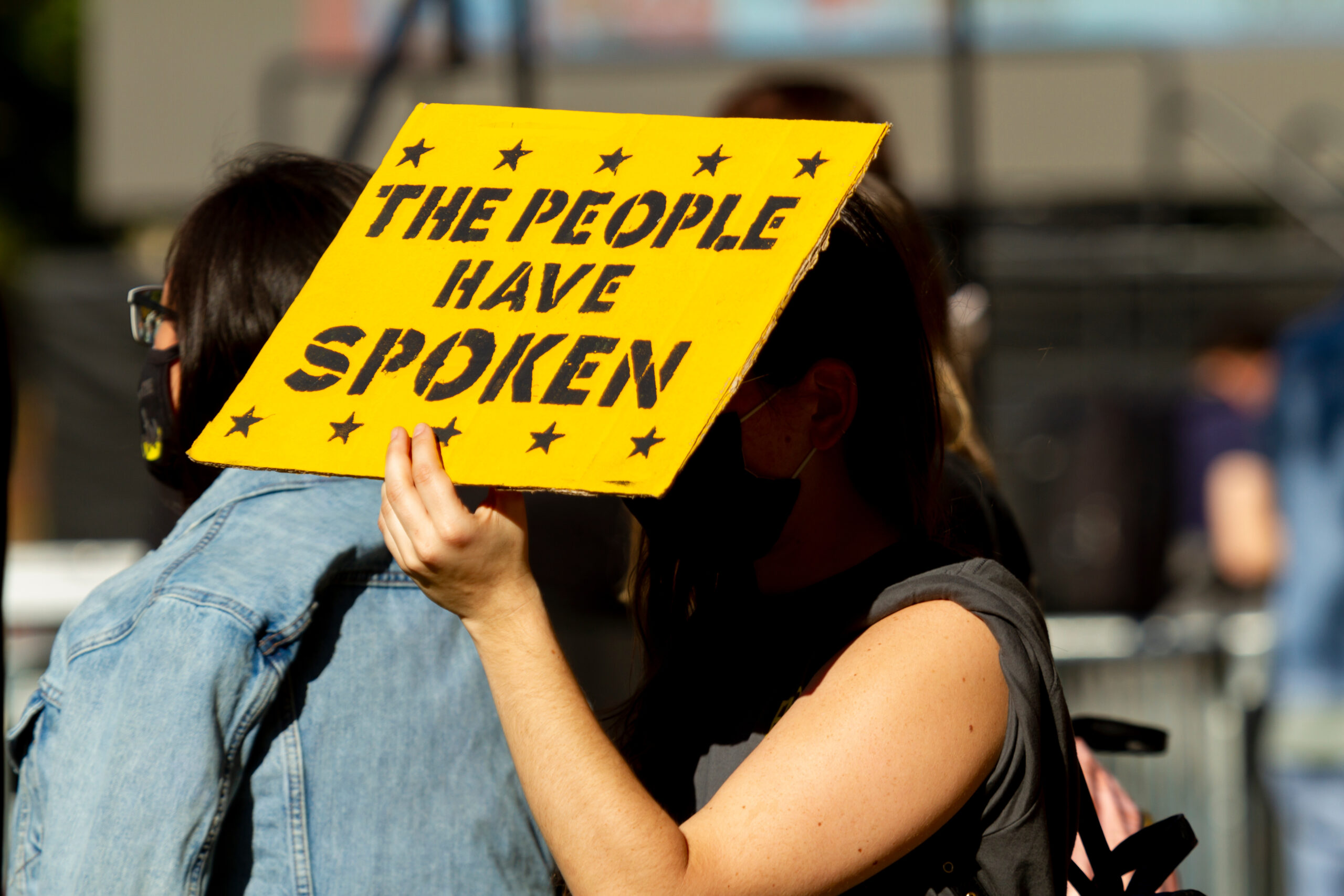
Special Issue: Election Violence
In partnership with Search for Common Ground We are days away from the 2024 U.S. presidential election. The United States faces a real threat of election violence—defined by research featured in this special issue as “coercive force, directed towards electoral actors and/or objects, that occurs in the context of electoral … Read more
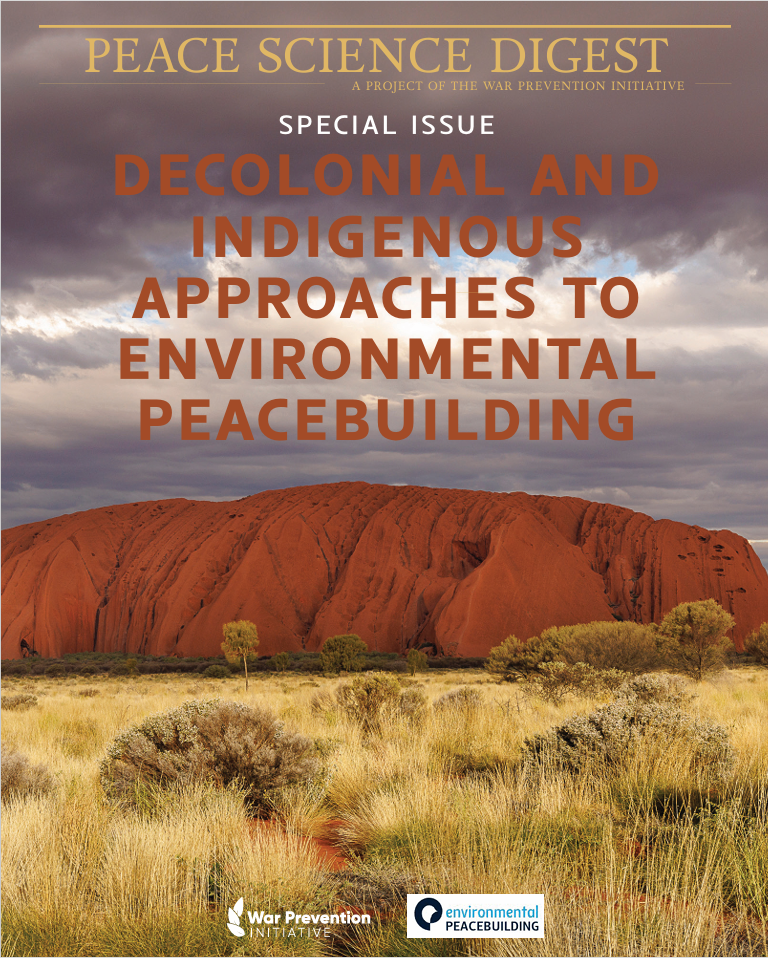
Special Issue: Decolonial and Indigenous Approaches to Environmental Peacebuilding
Environmental peacebuilding emerged from the convergence of multiple fields—like political science, environmental science, peace and conflict studies, and ecology—concerned with how the natural environment shapes conditions for peace and conflict. Read our special issue on the topic here.
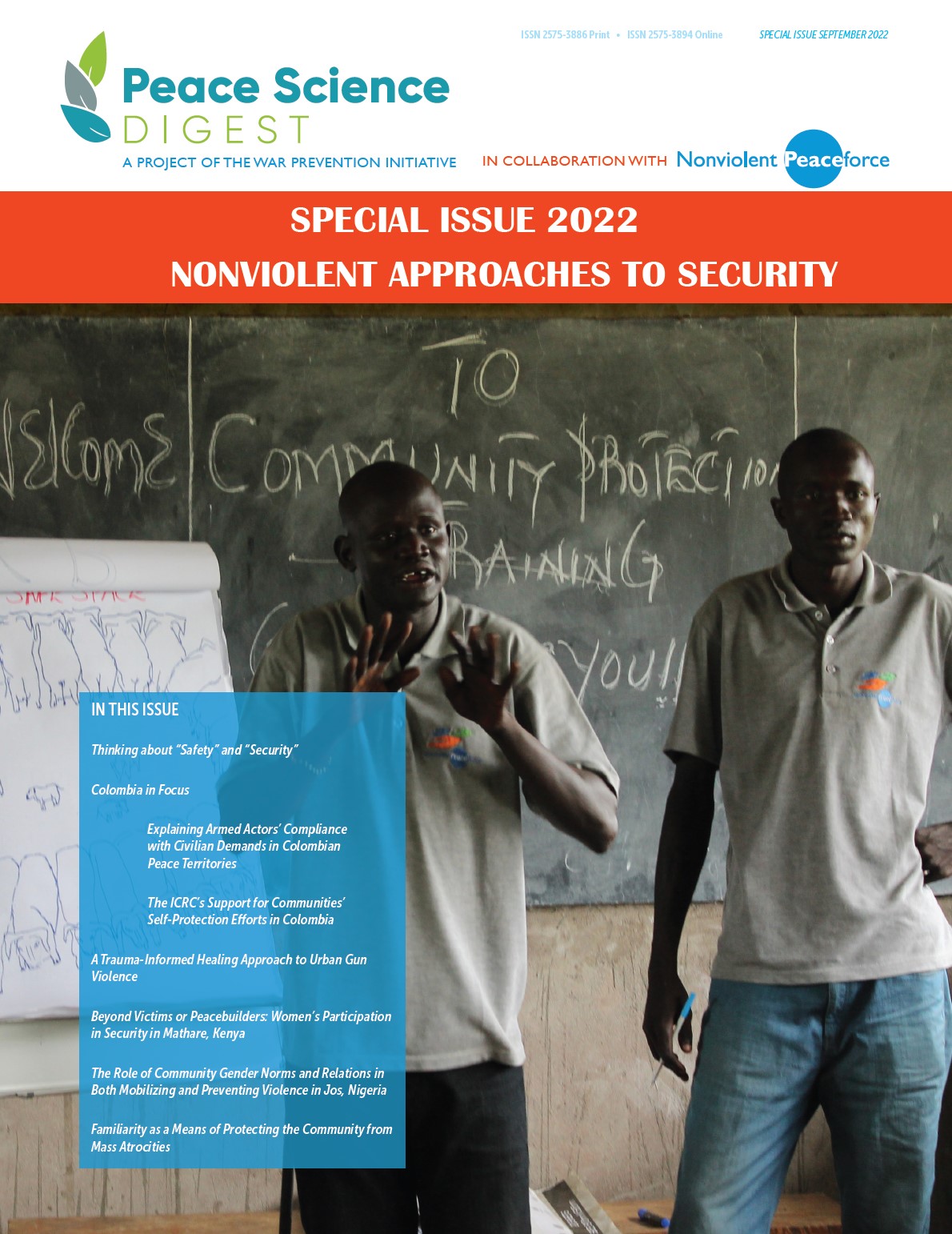
Special Issue: Nonviolent Approaches to Security
Click here to download the PDF version of the Special Issue Dear Readers, We are pleased to present our special issue on nonviolent approaches to security in collaboration with Nonviolent Peaceforce. This issue focuses on nonviolent, civilian-led strategies for protection and violence prevention in various violent contexts, ranging from civil … Read more
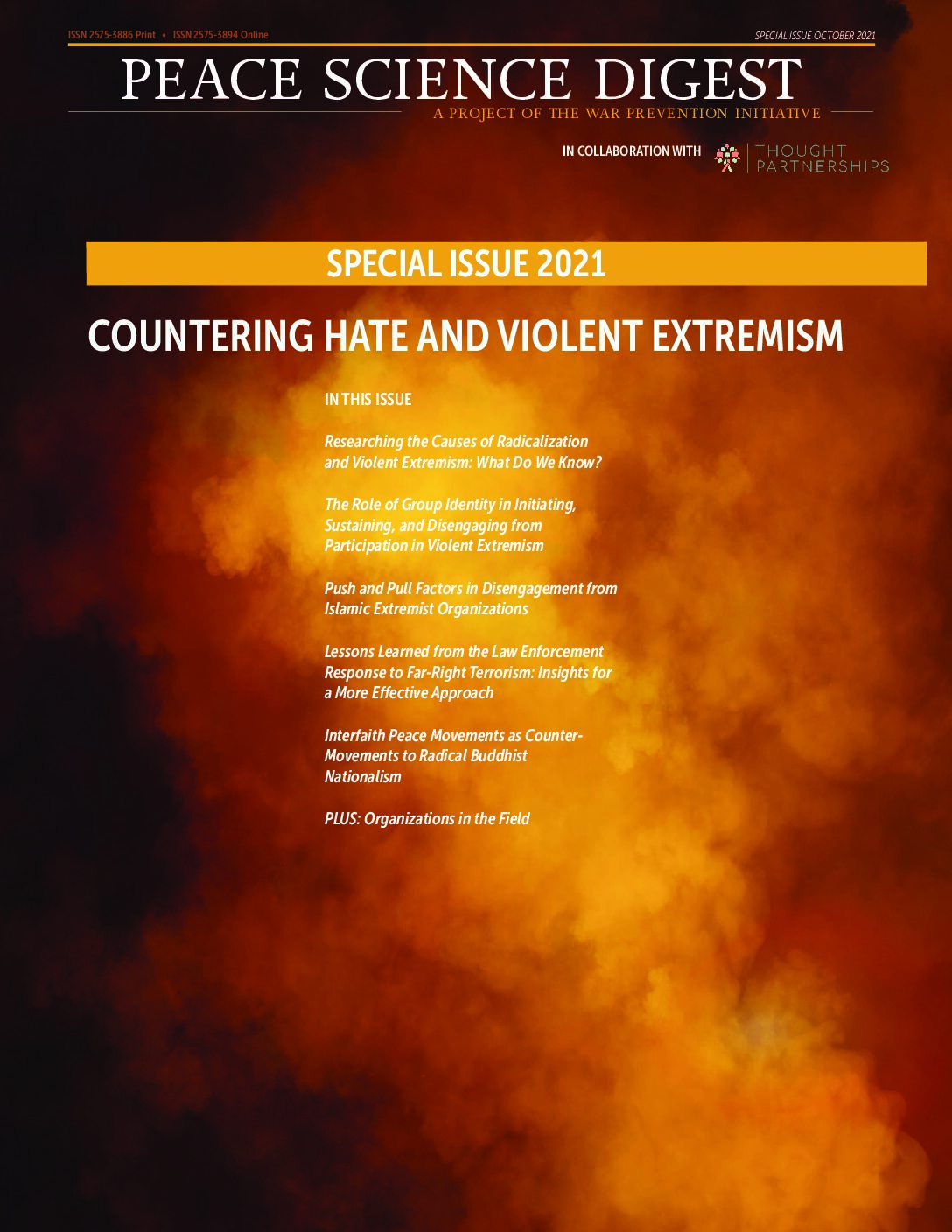
Special Issue: Countering Hate and Violent Extremism
We are pleased to present our special issue on countering hate and violent extremism in collaboration with Thought Partnerships.
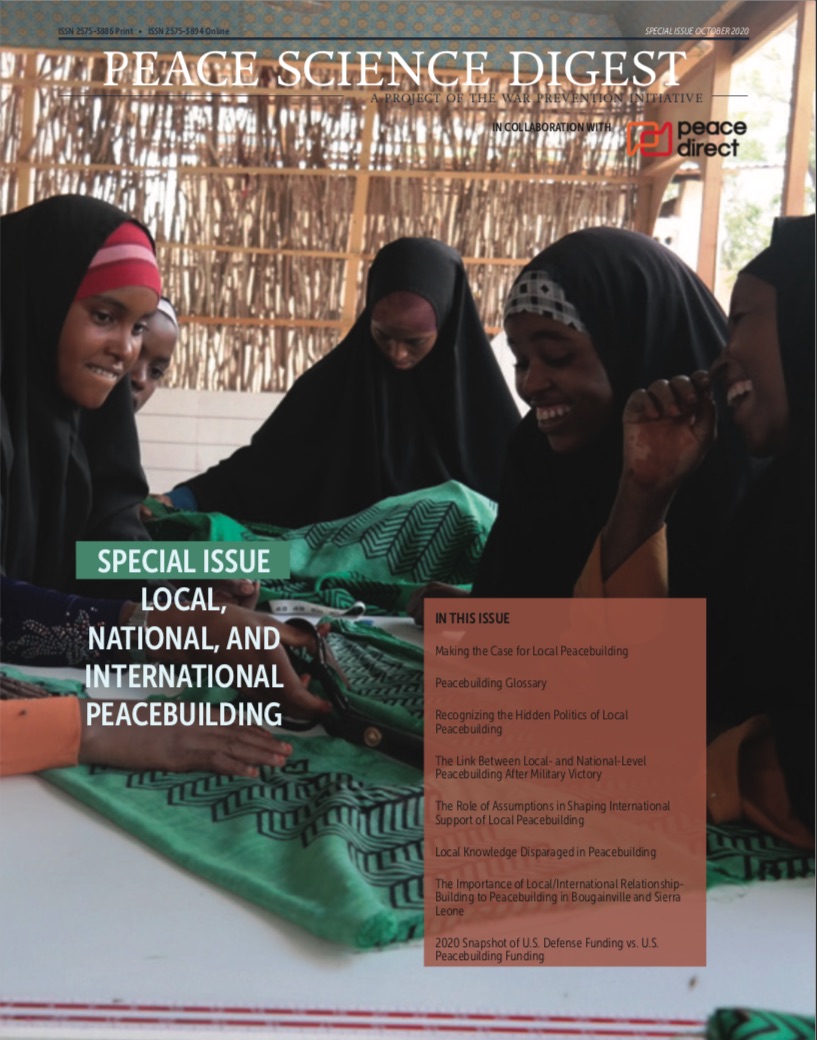
Special Issue: Local, National, and International Peacebuilding
We are pleased to present our special issue on the relationship between local, national, and international peacebuilding in partnership with Peace Direct. The recent reorientation towards local peacebuilding represents a radical shift in whose voices are centered in the work of creating a more peaceful and just world…
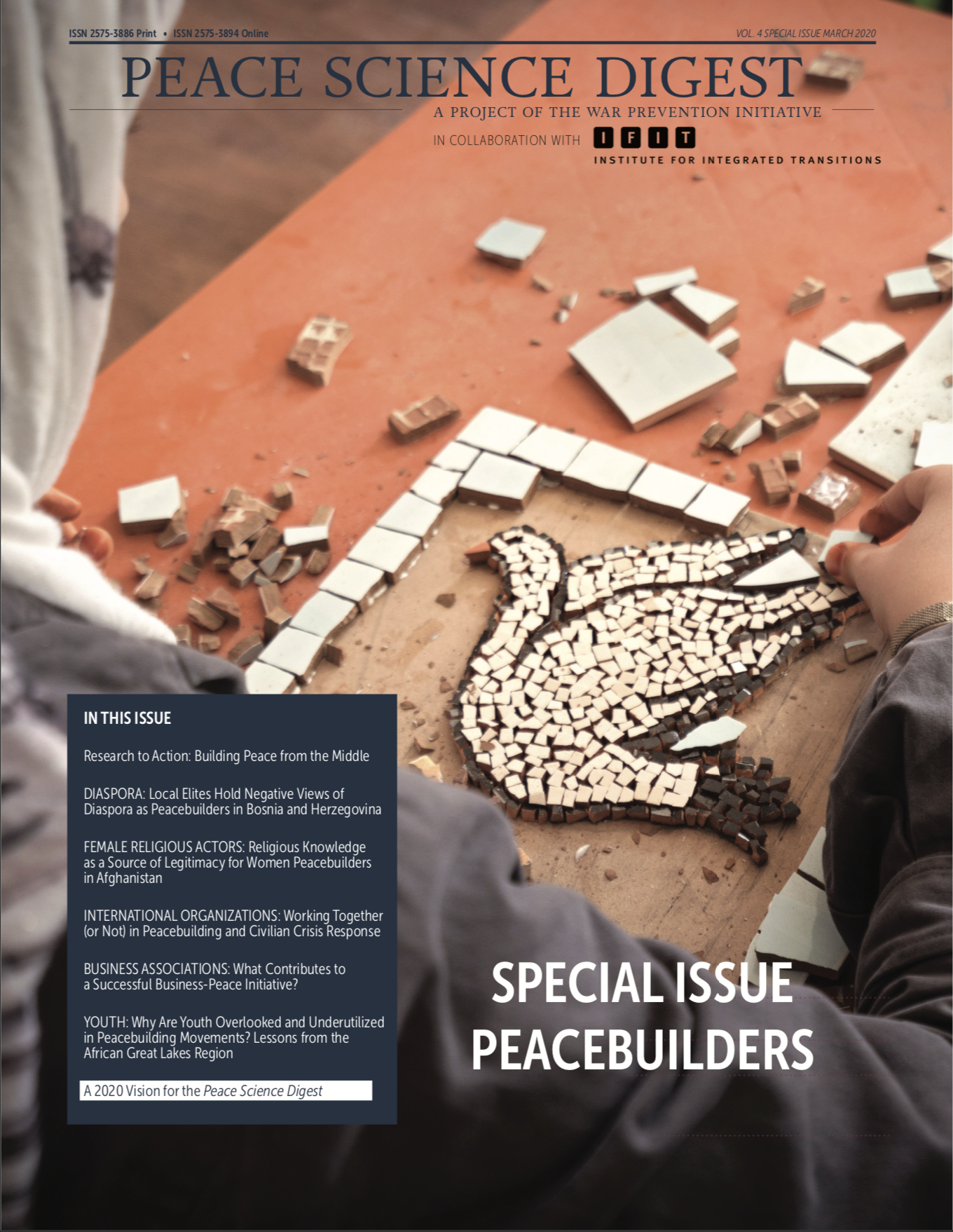
Special Issue: Peacebuilders
This special issue—the final issue of Volume 4—focuses on peacebuilders: Who are they? How do they work? What are their unique needs and capacities? What challenges do they face?
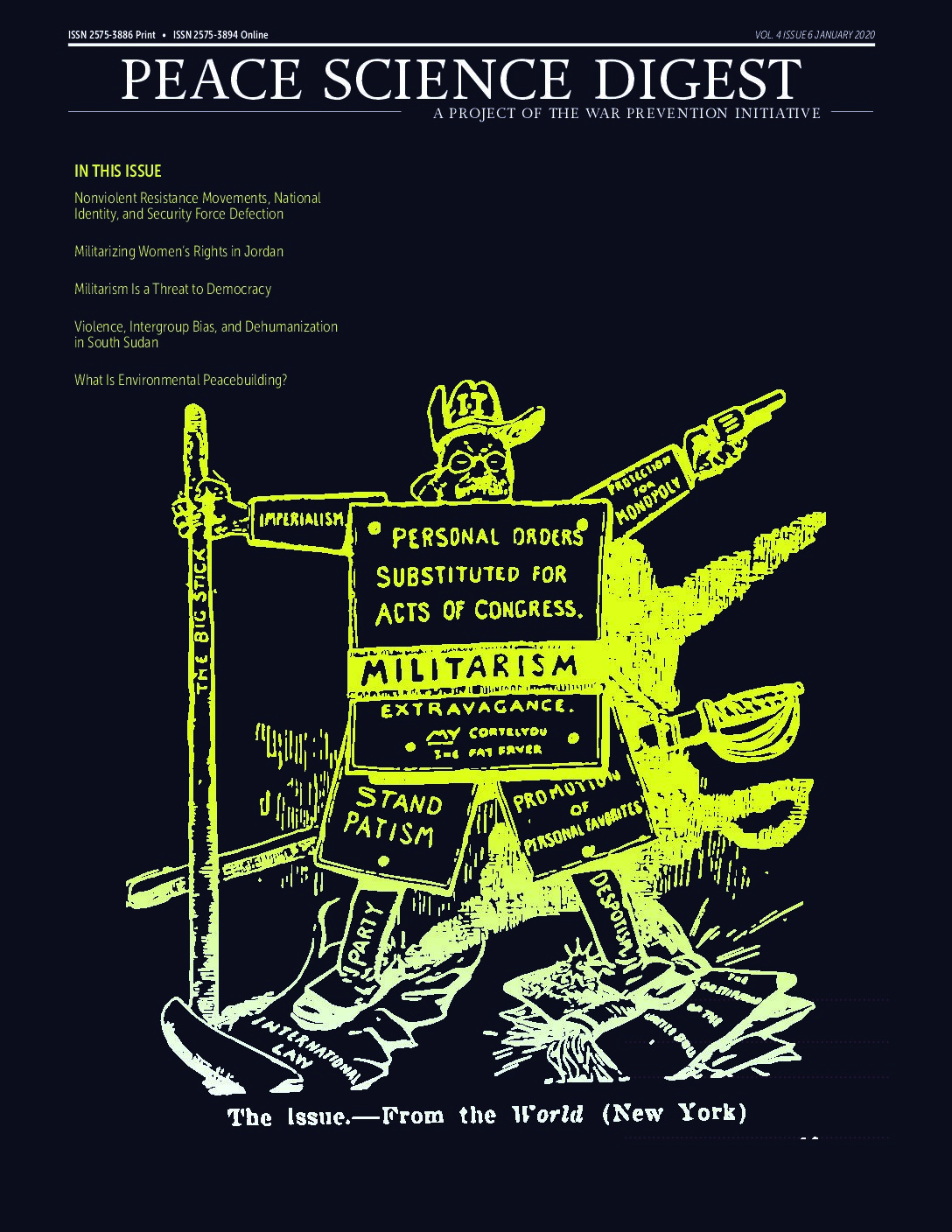
Volume 4, Issue 6
As of January 2020, The U.S. and Iran have walked back from the precipice of war. The recent escalation underscores the prevalence of militarism, especially here in the U.S.—and why the work of the Peace Science Digest in countering militarist narratives is so urgently needed. In particular, our first task … Read more
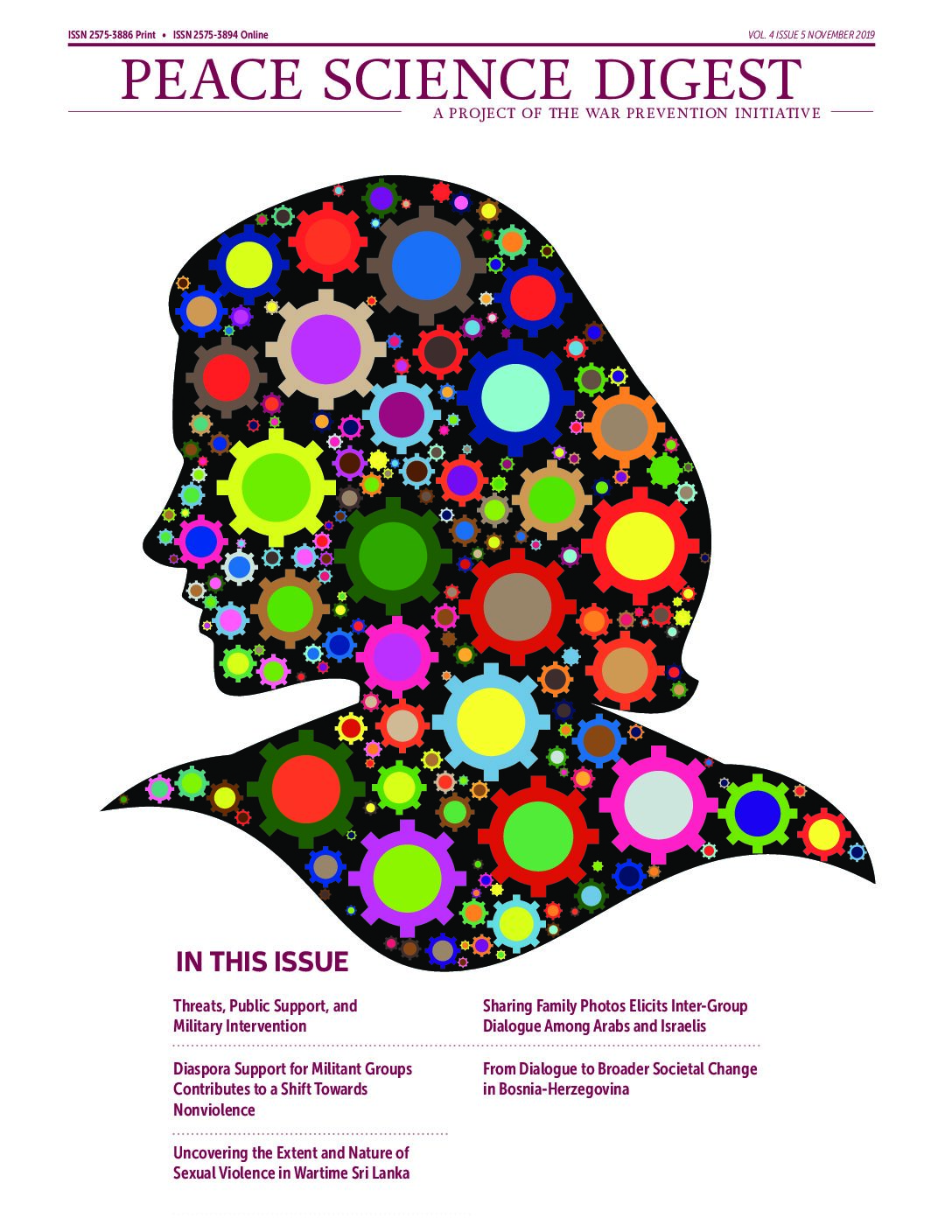
Volume 4, Issue 5
What people believe matters. It matters, most crucially, to decisions about how to act. We all must make sense of the world before we can act in it and on it. Is it possible to shift beliefs, particularly those that condone the use of violence or embrace exclusionary or dehumanizing … Read more
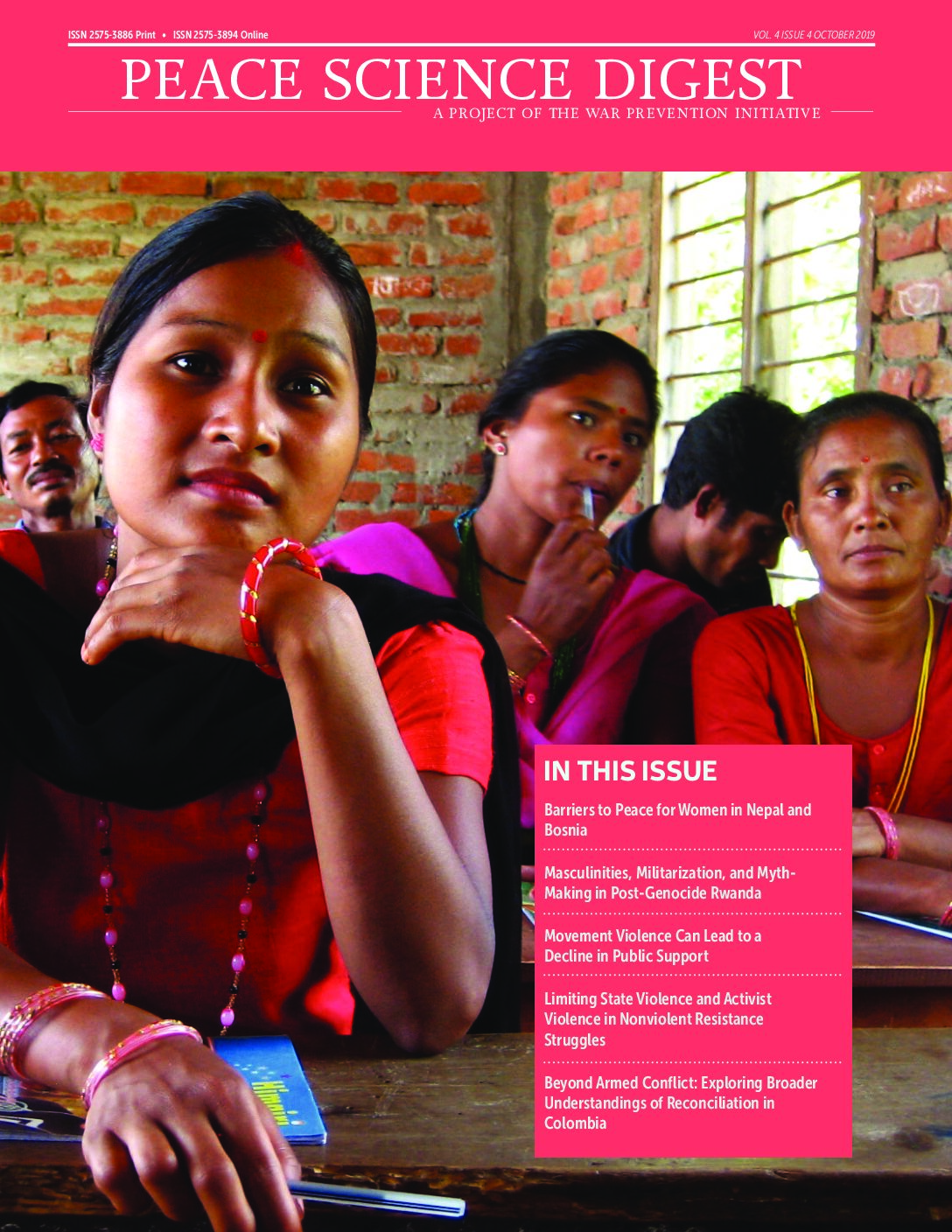
Volume 4, Issue 4
Nearly all nonviolent resistance movements face a common challenge—the temptation to turn to violence, whether among those within the movement or on the part of the government whose policies or behaviors may be the target of the resistance movement.
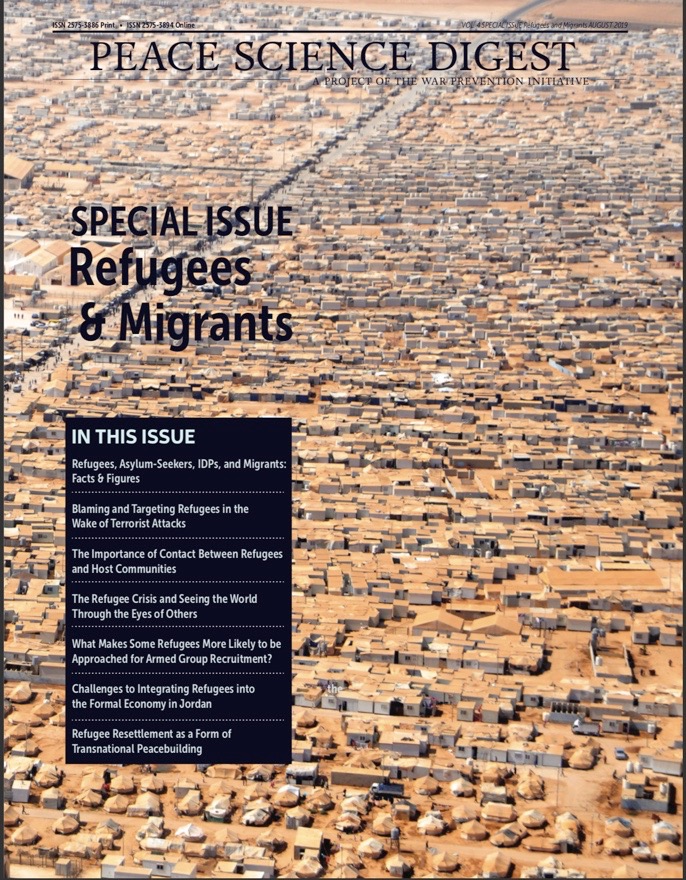
Special Issue: Refugees & Migrants
Considering the plight of migrants (258 million globally) and especially refugees (26 million globally) is impossible to do without also considering war and human security. On the most obvious level, one of the many enormous costs of war is the massive human displacement it causes as people try to protect themselves by leaving the war zone.
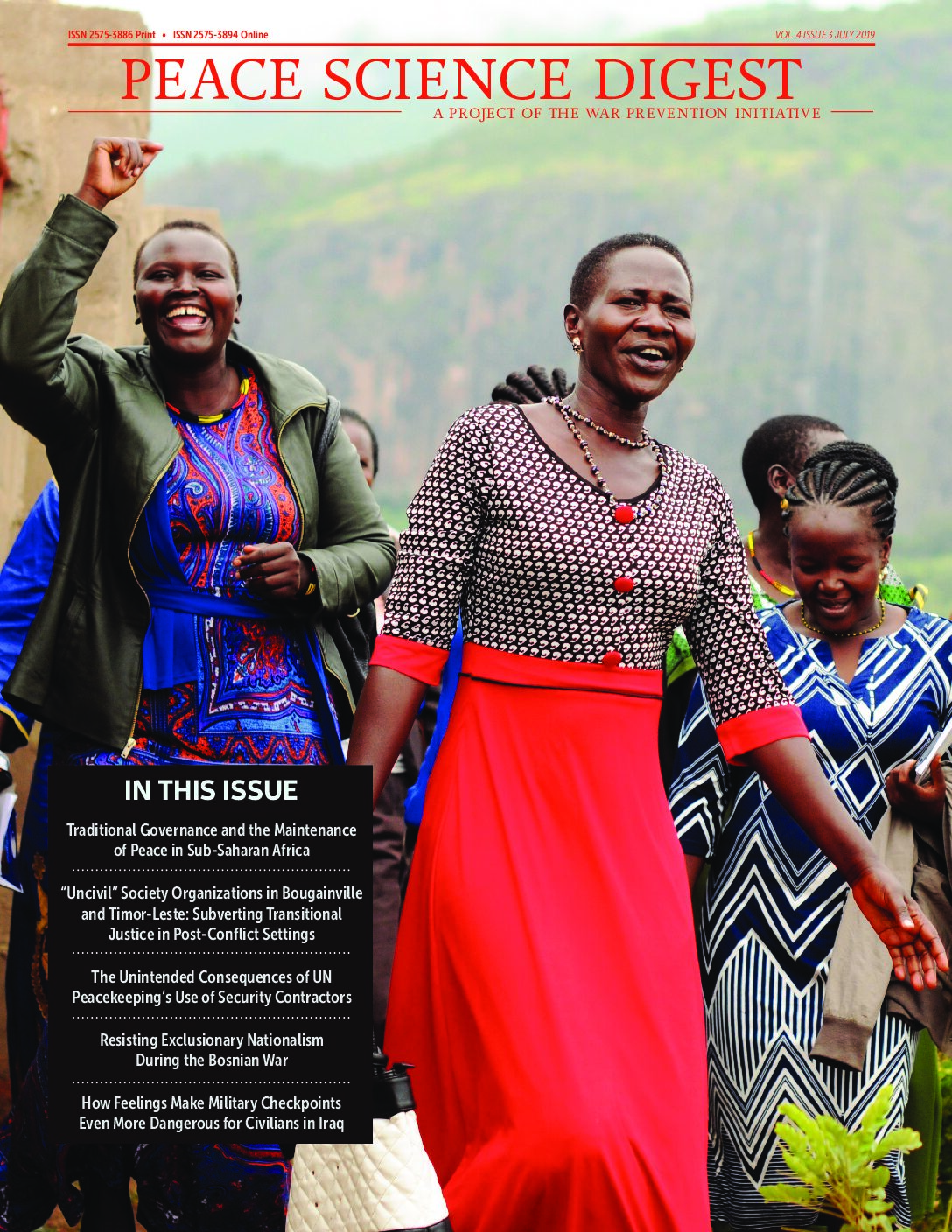
Volume 4, Issue 3
In this issue, we examine a set of articles with a great deal of regional diversity — two articles focus on peacebuilding or peacekeeping in Africa, one looks at resistance to exclusionary nationalism in Bosnia (Europe), another explores “uncivil society” in Bougainville and Timor-Leste (Asia-Pacific), and, finally, one considers military checkpoints in Iraq (Middle East). These articles heighten our awareness of the complexities and challenges involved in peacebuilding after war. All the more reason to avoid war in the first place.
